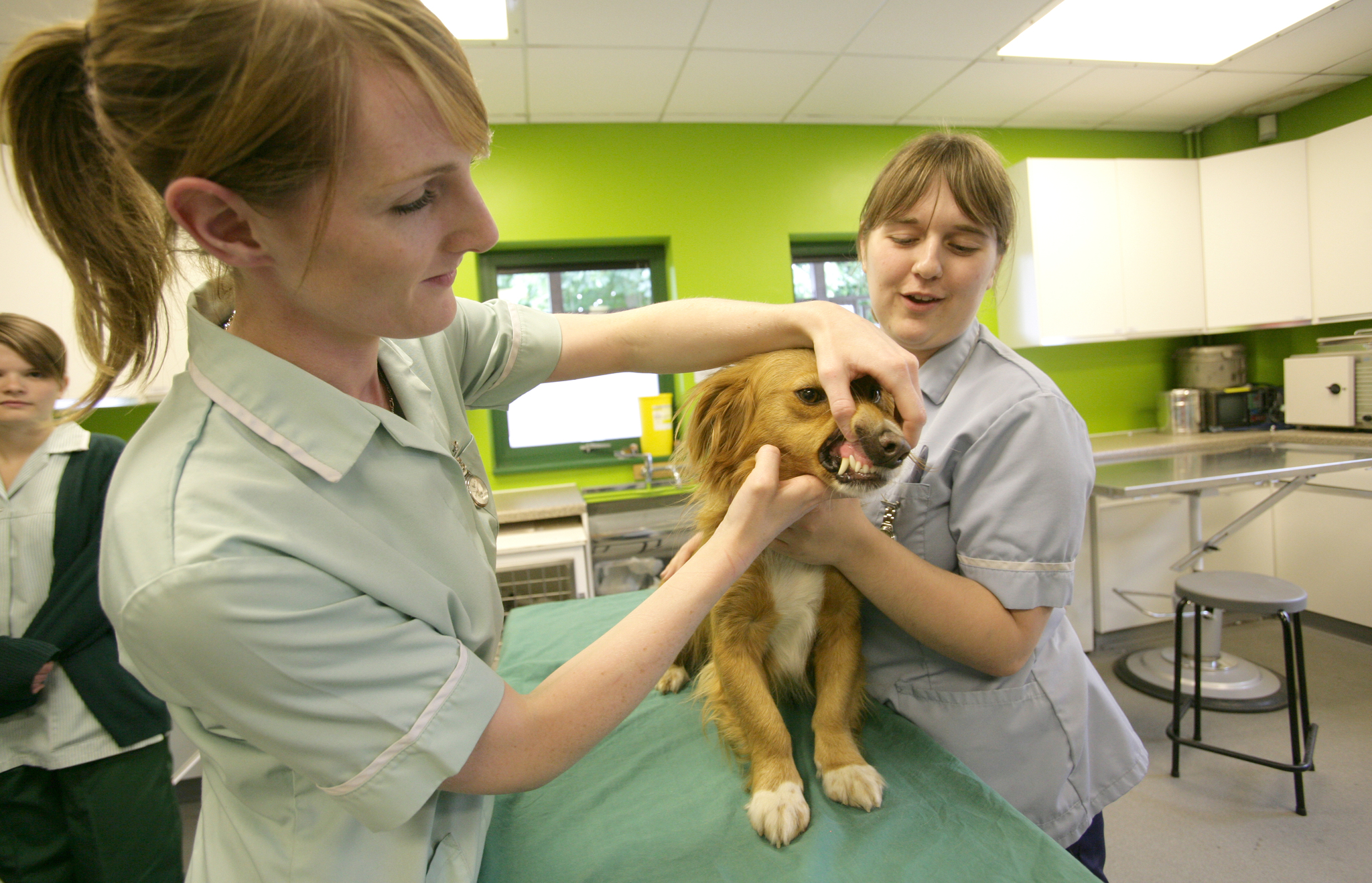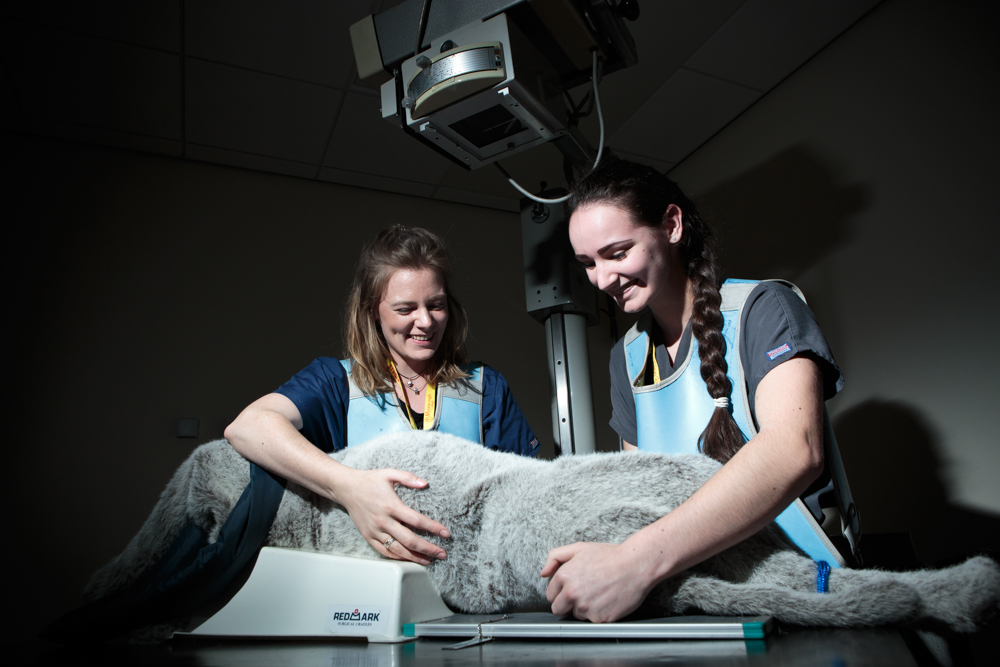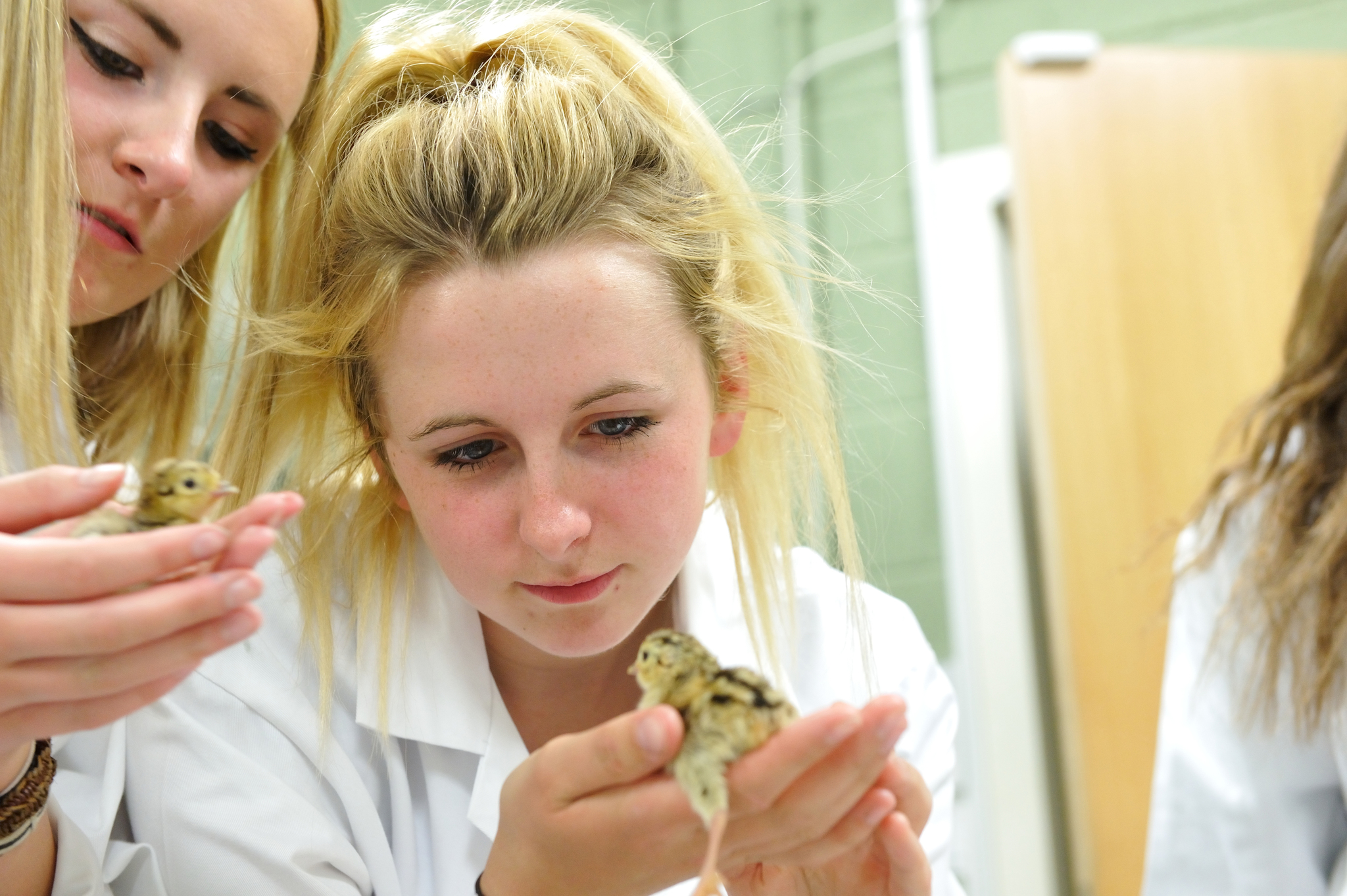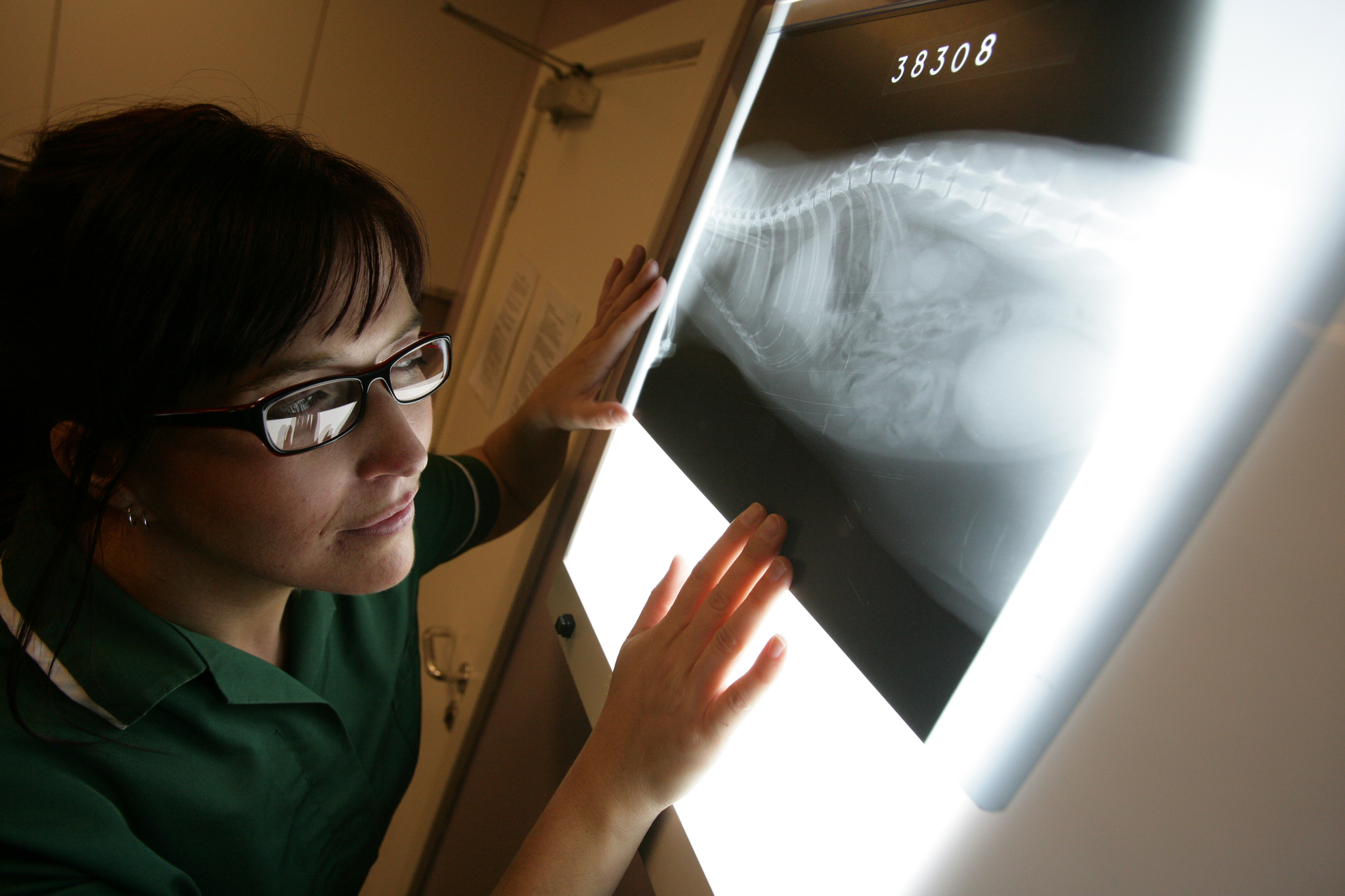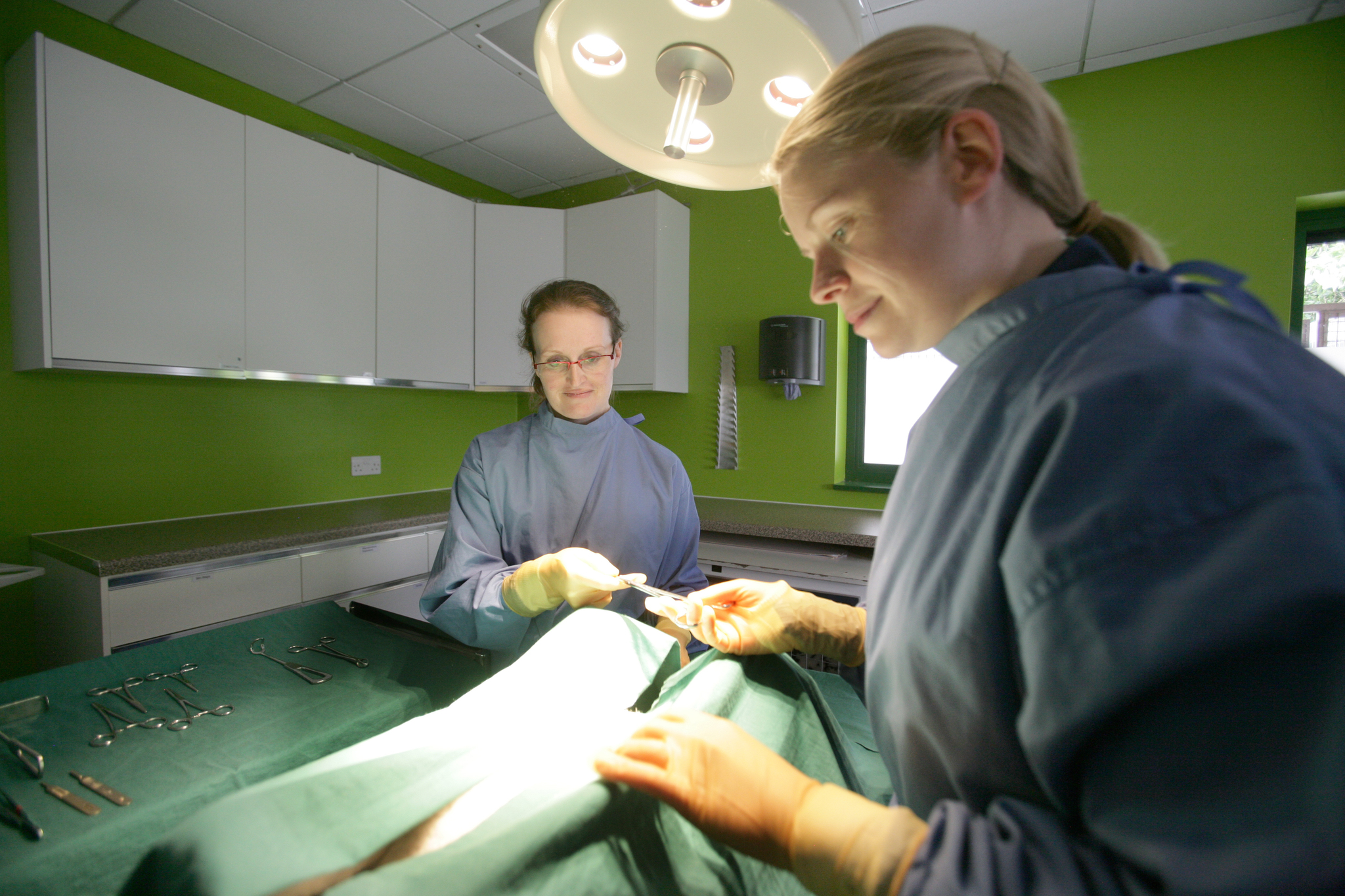Course modules
Diploma
Professionalism and ethics for small animal veterinary nurses.
Veterinary nursing support for emergency and critical care of small animal patients.
Practical small animal peri-operative veterinary nursing support.
Principles of small animal peri-operative veterinary nursing support.
Practical small animal veterinary nursing support.
Principles of small animal veterinary nursing support.
Practical monitoring of anaesthesia for small animal veterinary nurses.
Principles of supporting anaesthesia for small animal veterinary nurses.
Operating theatre practice for small animal veterinary nurses.
Laboratory diagnostics in small animal practice.
Diagnostic imaging in small animal practice.
Veterinary medicine supply in small animal practice.
Veterinary nursing care for hospitalised small animals.
Infection control in small animal practice.
Applied animal welfare, health and husbandry in small animal practice.
Small animal functional anatomy and physiology for veterinary nurses.
Professional relationships and communication in small animal practice.
Operational requirements in small animal practice.
Entry requirements & additional information
Entry requirements
Must be aged 16 or over & have officially left school.
Must be employed (NOT self-employed) in a small animal veterinary practice, working a minimum of 30 hours per week.
Minimum of 5 GCSEs at grades A-C/4-9 including maths, English Language & science.
NB: English Language & Maths Functional Skills Level 2 will be accepted as an alternative to GCSEs however Adult Numeracy and Literacy qualifications, will not be accepted.
Must be a citizen of a country with in the European Economic Area (EEA) or have the right of abode in the UK.
You should also complete and send the Practice Information Form back to us as soon as possible.
Learning and assessment
This qualification leads to professional registration and licence to practice veterinary nursing on the register of veterinary nurses held by the RCVS. It is a requirement of the Royal College of Veterinary Surgeons (RCVS) Byelaws that such qualifications be subject to independent assessment and examination.
The qualification will accordingly be assessed using a variety of methods.
Knowledge and understanding will be assessed by:
- Assignments set by Vet Skill and administered by the College.
- Multiple choice examinations set and administered by Vet Skill.
Practical skills will be assessed by:
- VNO5 Formative practical skills assessments administered by the college.
- An electronic work-based progress log (Nursing Progress Log - NPL). Practical skills are recorded by students, their Clinical supervisors confirm their competency, and College internally verifies student progress.
- Practical examination of essential clinical skills (Objective Structured Clinical Examination – OSCE) set and administered by Vet Skill.
NB: Apprentices must also complete a Professional Discussion assessment prior to being able to undertake their OSCE.
Course Tutors
The veterinary nursing course team consists of 21 experienced RVNs, 2 MRCVS and a Veterinary Nursing Technician.
Progression
Certificate in Advanced Veterinary Nursing (subject to approval by the University of Central Lancashire and RCVS) and subsequent potential progression opportunities to BSc (Hons) Veterinary Nursing.
Careers
The Level 3 Veterinary Nursing course offers a comprehensive pathway to a diverse and rewarding career in the veterinary industry. Students will develop the skills needed to excel in various roles, including working in veterinary practices or hospitals, promoting animal welfare. Opportunities to progress into roles such as a senior nurse, head nurse or practice manager are often given within the practice role. Nurses often pursue specialties and develop their interests through continued professional development (CPD).
Alternatively veterinary nurses may serve as a representative for veterinary pharmaceutical, nutritional, or equipment manufacturers.
The course also prepares students for opportunities in nursing abroad, instructing or lecturing, and specialising as a theatre or medical nurse. Additionally, graduates may pursue future career development as laboratory technicians or researchers, contributing to advancements in veterinary science.
This program is ideal for those passionate about animal care and eager to explore the wide range of career opportunities available to veterinary nurses.
Special requirements
Fees - Dependent on age, route chosen (i.e. Apprenticeship / self or loan-funded), and previous qualifications.
Costs that are mandatory for the course:
- RCVS enrolments fees, Vet Skill enrolment and examination fees.
- Textbooks as required.
- Travelling to College for tuition and assessments.
- Travelling to external examinations as required.
Work experience
The qualification requires students to have access to suitable work experience in an Approved Training Practice for a minimum of 1800 hours; this will be on the basis of paid employment as a student veterinary nurse.
